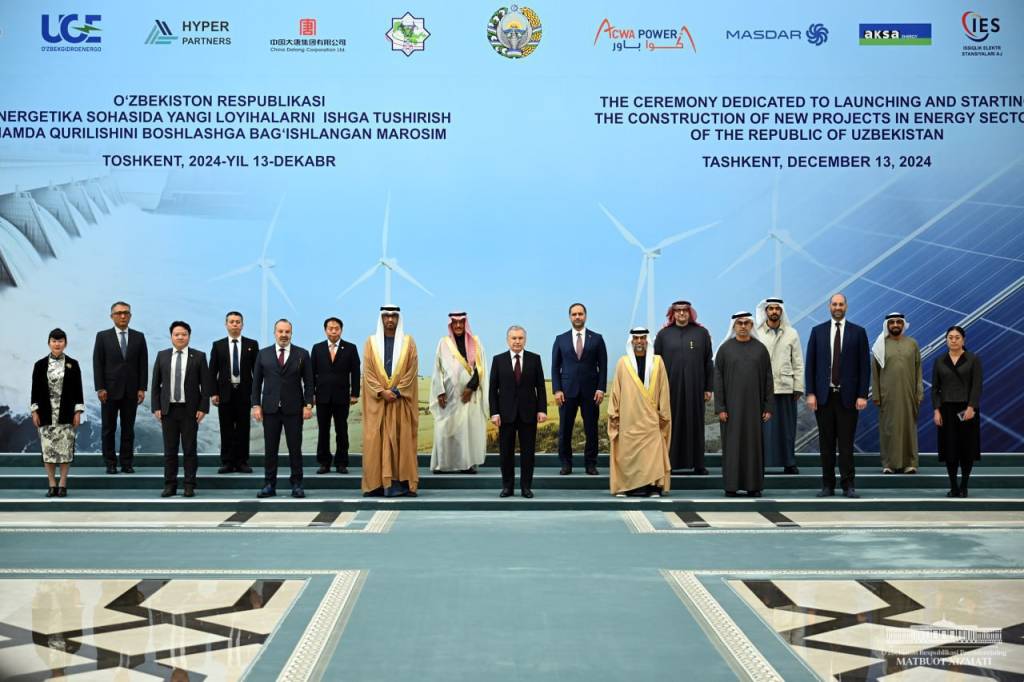WNAM MONITORING: President of the Republic of Uzbekistan Shavkat Mirziyoyev took part in a ceremony dedicated to launching new energy capacities and constructing several facilities.
These projects are part of a large-scale effort aimed at strengthening the potential of the country’s energy system. In December last year, 5 solar and one wind power plants were commissioned. During the President’s visits to the regions, the implementation of many new projects was launched.
Today, 24 projects worth more than $7 billion were launched. In particular, 5 solar and wind power plants with a total capacity of about 2.3 thousand megawatts and 5 high-voltage substations were connected to the grid in Bukhara, Navoi, Namangan, and Tashkent regions.
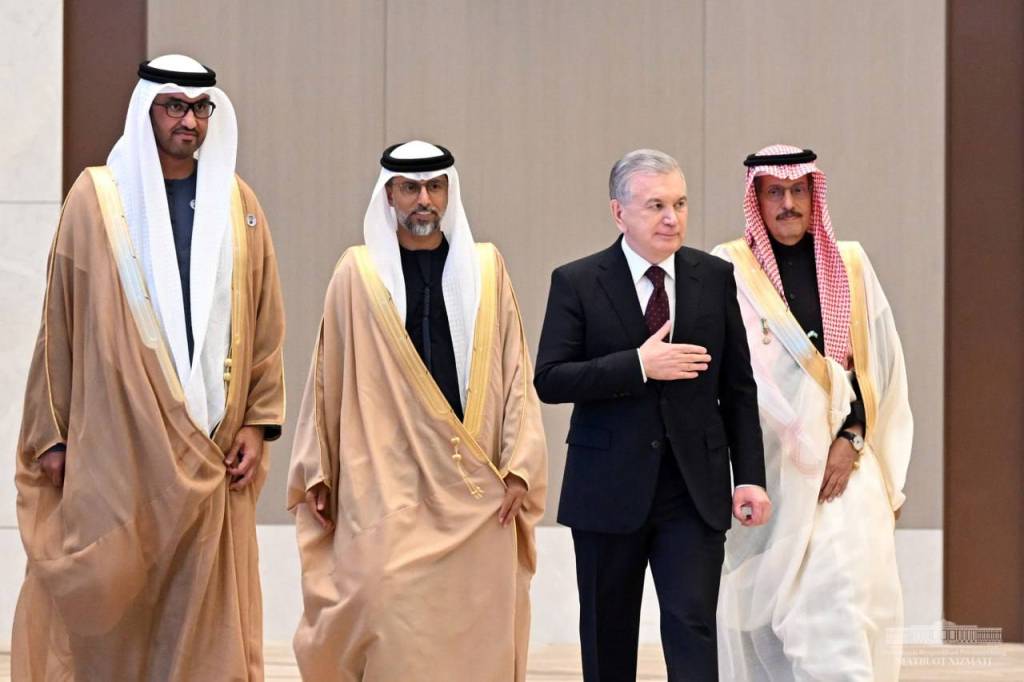
For the first time in Uzbekistan, an energy storage system with a capacity of 300 megawatts was created in Andijan and Fergana. A 400-megawatt power plant was commissioned in Kashkadarya, a modern cogeneration plant was put into operation in Tashkent, and 4 small hydroelectric power plants were built in Andijan, Surkhandarya and Tashkent regions.
In addition, the construction of 6 energy facilities with a total capacity of 2.5 gigawatts has begun in Fergana, Samarkand, Navoi, and Tashkent regions, and the city of Tashkent.
In the coming years, these new projects will allow for the additional production of 9.5 billion kilowatt-hours of electricity, save 2.5 billion cubic meters of natural gas, and prevent the emission of 4.6 million tons of harmful gases.
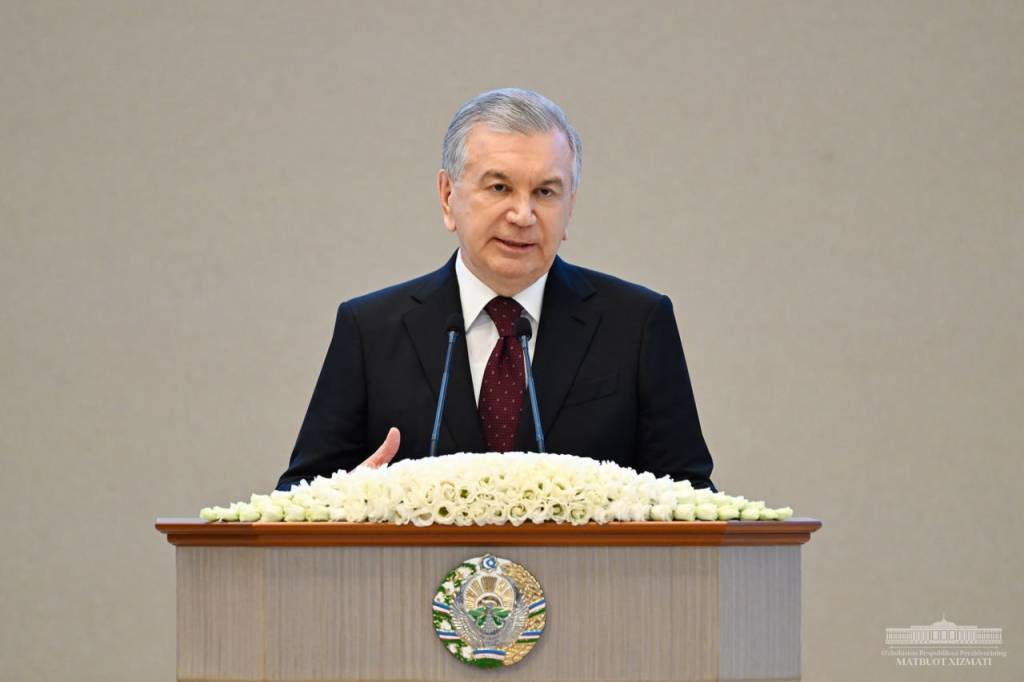
More than 4 million households will have uninterrupted and environmentally friendly energy.
This will also create the preconditions for creating added value for $4 billion in other sectors of the economy.
Overall, in 2025, Uzbekistan will produce 84 billion kilowatt-hours of electricity, which is 25 billion kilowatt-hours or 1.5 times more than in 2016.
Speaking at the ceremony, President Shavkat Mirziyoyev emphasized that all these projects are being implemented through foreign direct investment. Gratitude was expressed to companies from the United Arab Emirates, Saudi Arabia, Türkiye, China, and Germany, as well as international institutions such as the Asian Development Bank, the Asian Infrastructure Investment Bank, the Islamic Development Bank, the European Bank for Reconstruction and Development, and the World Bank for fruitful cooperation.
Thanks to open access for the private sector, about $20 billion in foreign direct investment has been attracted to the energy sector of Uzbekistan over the past five years.
In the industry, which was previously only attended by the state, 24 independent energy producers have begun operating.
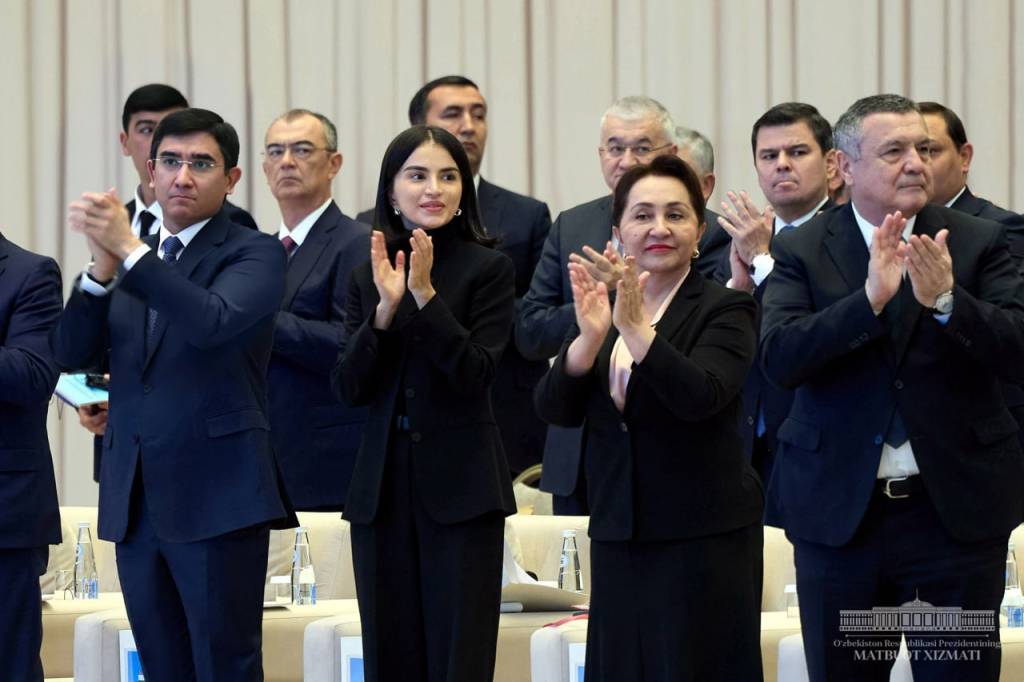
In particular, large solar and wind power plants with a total capacity of 3.5 thousand megawatts, equivalent to 10 billion kilowatt-hours, were launched in the green energy sector. This made it possible to increase the share of green energy in the energy system to 16 percent.
As is known, last year, the country’s GDP reached a historic figure of $100 billion for the first time. By 2030, the economy of Uzbekistan should grow to $200 billion.
This will increase the demand for electricity by 1.5 times over the next five years. In addition, within the framework of the Paris Agreement, it is planned to reduce emissions of harmful gases by 35 percent by 2030.
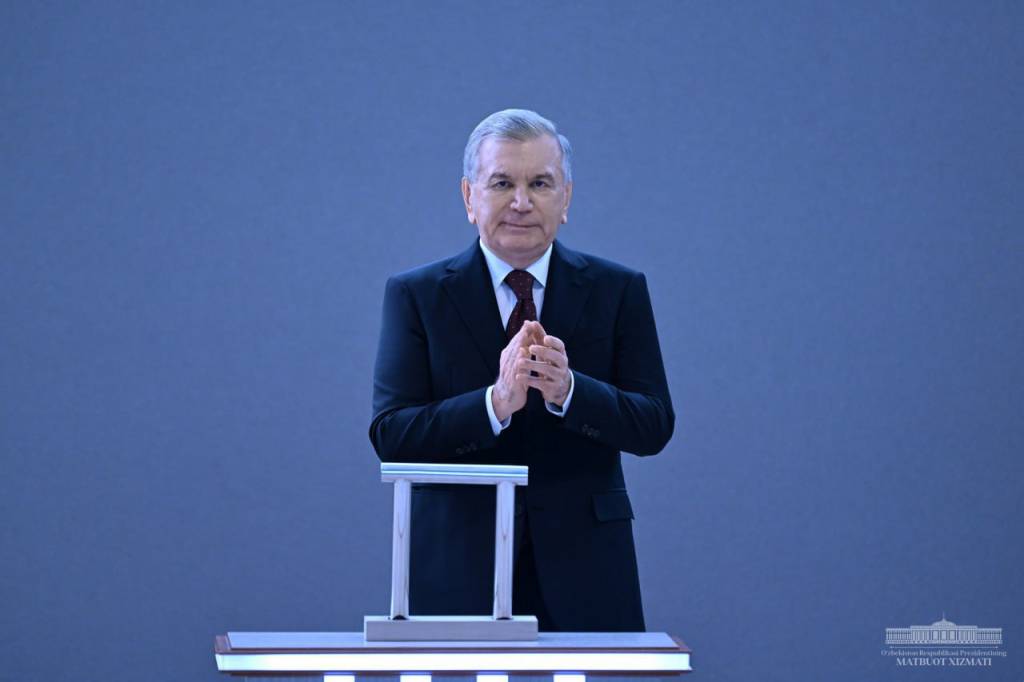
The President outlined priority areas of work in the energy sector.
First, by 2030, additional green capacities of 19 thousand megawatts will be built, and the share of renewable energy will be increased to 54 percent. By 2025, it is planned to introduce 18 solar and wind stations with a capacity of 3.4 thousand megawatts and energy storage systems with a capacity of 1.8 thousand megawatts. This will increase the production of green energy to 12 billion kilowatt-hours next year. Also, within two years, a large-scale program will be implemented with private partners to create more than 2 thousand small and micro-hydroelectric power plants.
Second, the liberalization of the electricity market will be continued. By the end of next year, it is planned to create a competitive wholesale electricity market. Public-private partnership will also be introduced in the energy distribution sector, and $4 billion in investments will be attracted to modernize the networks. The first project for transferring the management of regional electric networks to the private sector has been developed in Samarkand region, and an international tender has been announced.
Third, the expansion of international cooperation in green energy. Within the framework of COP-29, agreements were signed with Kazakhstan, Azerbaijan, and Saudi Arabia on the joint export of green energy to Europe. Together with neighboring countries, a single platform was launched to ensure the stability of the regional energy system.
Fourth, developing green energy is a new driver for other sectors of the economy and improving the population’s standard of living.
Solar panels with a total capacity of 1 thousand megawatts have already been installed, which allows for the annual production of 1.5 billion kilowatt-hours of electricity. Support for green initiatives will continue by introducing dual training to prepare specialists.
“Today’s event opens a new page in the history of our country’s energy sector. These projects will ensure not only economic growth, but also create an environmentally friendly and sustainable future for our descendants”, Shavkat Mirziyoyev said.
The ceremony was attended by the Minister of Energy and Infrastructure of the United Arab Emirates Suhail Mohamed Al Mazrouei, the Minister of Energy and Natural Resources of the Republic of Türkiye Alparslan Bayraktar and the Minister of Energy of the Kingdom of Saudi Arabia Prince Abdulaziz bin Salman Al Saud.
President Shavkat Mirziyoyev, by pressing the symbolic switch, launched the operation of 18 energy facilities and the construction of 6 new projects.

